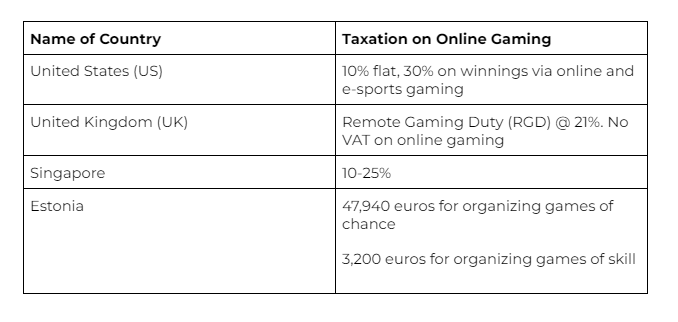Online gaming or social evil? It’s advantage govt
Post this levy, the government aims to add Rs 20,000 crore to its coffers. Last year, Indian online gaming companies only paid 2-3% GST.
- Ira Puranik
- Last Updated : July 14, 2023, 19:04 IST

The online gaming industry has been up in arms since the government slapped a hefty 28% GST on its activities earlier this week. The move was akin to a death knell for the sector, which is still pretty nascent in India, with around 1,000 companies that collectively employ over a lakh people.
Justifying the move, revenue secretary Sanjay Malhotra said that many Indian ministers see online gaming as a social evil. Hence, if people indulge in more productive activities instead of these games, it will lead to a drastic fall in the revenues of these companies. Then, it will at least serve some “social purpose”, a senior government official was quoted as saying. And even if people continue playing, the government stands to gain.
Economic Advantages
There’s more to this than just social benefit. Post this levy, the government aims to add Rs 20,000 crores to its coffers. Last year, when Indian online gaming companies paid 2-3% GST, they paid around Rs 1,700 crores. This is lower than the 5% tax rate levied on some regular food products.
An amendment to this effect will also be proposed in the upcoming monsoon session of parliament. It is important to note that all games, which are played without any stakes or bet will remain under the 18% GST slab. The 28% levy is only applicable when there bets are placed on the outcome of a game. In this case, it won’t matter if the game in concern is one of chance, or skill.
Nazara Tech, a prominent gaming company, also said that a 28% GST is unlikely to have an impact on its revenues, since real money gaming made up for only 5.3% of their entire earnings in FY23.
According to media reports, Malhotra also mentioned at the possibility of levying TCS on payment service providers that cater to online gaming platforms.
The industry promptly registered its displeasure on the new rates, citing unemployment, impact on foreign investments and their chances of relocating to other countries in order to survive. But as Aashish Sharma, Co- Founder & Litigation Head, Lex N Tax sees it, there are many ways to perceive it.
“Some may argue that a 28% GST rate, which is the highest bracket and is charged only on certain luxury goods and services helps generate revenue for the government and promotes a more equitable distribution of tax burdens. On the other hand, others may argue that a high GST rate could lead to increased costs for consumers and may affect the affordability of certain goods and services”, he notes.
How are other countries faring?
Amidst concerns of Indian gaming companies shifting bases abroad, take a look at how other countries tax online gaming:

Download Money9 App for the latest updates on Personal Finance.
Related
- खुला है निप्पॉन इंडिया का रियल्टी और ऑटो सेक्टर का NFO, 28 नवंबर को होगा बंद
- अब कोचिंग सेंटर नहीं दे पाएंगे भ्रामक विज्ञापन, सरकार ने जारी की नई गाइडलाइन्स
- BOB Card से खरीदारी पर यहां मिल रहा बंपर डिस्काउंट, फ्रिज, टीवी, एसी पर 45,000 रुपये तक बचत
- EPF, ESIC और EPS में बड़े बदलाव की तैयारी में सरकार, बढ़ा सकती है बेसिक सैलरी लिमिट
- वेस्टर्न कैरियर्स के IPO में लगाने जा रहे हैं पैसे? यहां जान लें पूरी डिटेल
- Mercedes-Benz जल्द लॉन्च करेगी नई E-Class कार, सेल्फी कैमरा के साथ मिल रहे हैं कई दमदार फीचर्स

